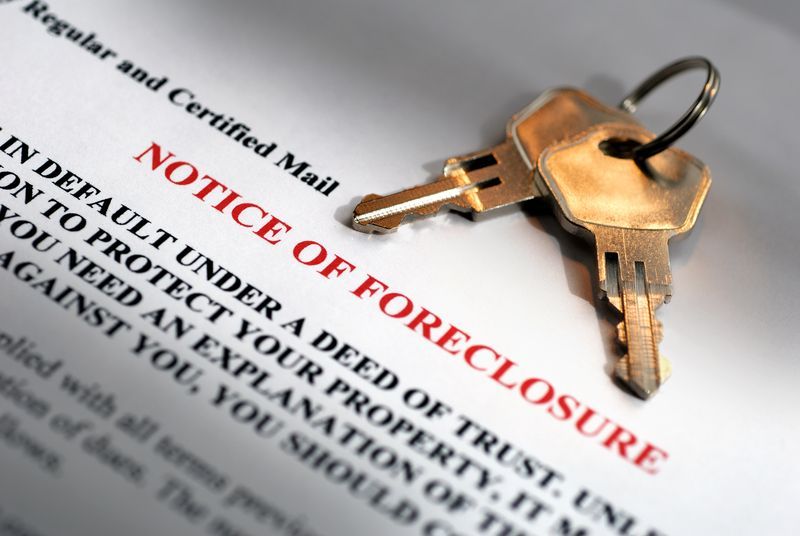Maximize Your Home Sale Profits: Capital Gains Tax Insights
When selling a home, understanding capital gains tax can significantly impact your profits. Many homeowners are unaware of how these taxes work and how they can affect their final earnings. Knowing the rules and strategies to minimize capital gains tax can help you keep more money from your sales. By being informed about the tax implications, homeowners can make better financial decisions and maximize their sales profits.
Understanding Capital Gains Tax
In the realm of real estate, one of the critical considerations for homeowners thinking about selling their property, especially those in Cincinnati and Northern Kentucky, is the impact of capital gains tax. This tax is levied on the profit made from the sale of property or an investment. Recognizing how capital gains tax works and how it's calculated is essential for sellers aiming for a profitable quick home sale.
Capital gains tax is categorized into two types based on how long the property was held before the sale: short-term and long-term. Short-term capital gains tax applies to properties held for one year or less and is taxed as ordinary income, which can range from 10% to 37%, depending on the seller's income bracket. On the other hand, long-term capital gains tax applies to properties owned for more than one year. The rates for long-term gains are more favorable, ranging from 0% to 20%, significantly lower than the ordinary income tax rates. This distinction underscores the importance of timing in property sales.
To calculate the capital gains on a property sale, you subtract the property's cost basis (the original purchase price plus any improvements made to the property) from the selling price. For example, if you purchased a home in Cincinnati for $150,000, spent $50,000 renovating it, and sold it for $300,000, your capital gain would be $100,000 ($300,000 selling price - $200,000 cost basis).
The IRS provides specific rates for long-term capital gains tax, which, as of 2023, are 0% for singles with an income up to $40,400 and married couples filing jointly up to $80,800, 15% for singles earning $40,401 to $445,850 and married couples up to $501,600, and 20% for income levels above these thresholds. These brackets are designed to favor those with lower income levels, offering them a lower tax on their gains.
Cincinnati and Northern Kentucky homeowners must understand these nuances of capital gains tax when considering a quick home sale. By comprehensively understanding how capital gains tax is calculated and what rates apply, sellers can better plan their sales strategies and potentially increase their net profits. Awareness of these tax implications can contribute significantly to making informed decisions and facilitating a smoother, more financially beneficial sale process.
Eligibility for Exemptions
While the prospect of facing capital gains tax can be daunting for homeowners in Cincinnati and Northern Kentucky looking to quickly sell their properties, it's crucial to understand that not all sales are fully subject to this tax. Certain exemptions allow homeowners to exclude part or all of the profit from their taxable income under specific conditions, notably through the primary residence exemption.
The primary residence exemption is a significant relief for homeowners, enabling them to exclude up to $250,000 of profit from capital gains tax if filing as a single and up to $500,000 if filing jointly. To qualify for this exemption, homeowners must meet the "ownership and use" test. This involves owning and using the property as their primary residence for at least two of the five years immediately preceding the sale. Importantly, these two years do not need to be consecutive within the five-year window.
For example, if a homeowner in Northern Kentucky lived in their house for a year, rented it out for the next three years, and then moved back in for another year before selling, they would still meet the eligibility criteria for the exemption. This flexibility is particularly beneficial for homeowners who may have needed to temporarily relocate due to work or personal circumstances but plan to sell their property shortly after returning.
There are other qualifying factors and exceptions that might influence a homeowner's eligibility for exemptions. For instance, if the sale is due to specific situations such as a change in employment, health reasons, or unforeseen circumstances, the IRS provides a reduced exclusion amount even if the homeowner doesn’t meet the full two-year residence requirement. This can greatly benefit those who need to sell their homes quickly due to unexpected life events.
It's also worth noting that any significant improvements made to the property can also affect the capital gains calculation, potentially reducing the taxable amount. Sellers should meticulously document all improvements and expenses associated with enhancing the value of their property, as these can be subtracted from the sale's profit, further decreasing potential tax liability.
Understanding these exemptions and how to qualify for them is paramount for Cincinnati and Northern Kentucky homeowners. Properly navigating these rules can lead to significant tax savings, making a swift home sale not only more manageable but also more profitable in terms of tax advantages. As always, consulting with a tax professional familiar with the local housing market and federal tax laws is advisable to fully leverage these exemptions.
Deductions and Other Ways to Reduce Tax Liability
When it comes to quickly selling a home in the Cincinnati and Northern Kentucky areas, understanding the nuances of capital gains tax is crucial. Beyond exemptions, several strategies can help reduce the tax impact on profits. This segment explores deductions eligible for property sales and other methods to minimize tax liability, ensuring homeowners can retain more from their sales.
Home Improvement Deductions
Before selling, any improvements made to enhance a home's value can be beneficial not just for securing a better selling price but also for tax purposes. Capital improvements, such as adding a new roof, landscaping, or renovating kitchens and bathrooms, can be added to the home's cost basis. This effectively reduces the capital gain upon sale. Homeowners should keep detailed records and receipts of all such improvements to substantiate these claims.
Selling Costs
The expenses incurred during the sale process, including real estate agent commissions, legal fees, and marketing costs, can also be deducted from the home's selling price. This deduction can significantly lower the capital gains calculated, further reducing tax liability. Sellers need to maintain comprehensive records of all sales-related expenses.
Investment in Repairs
While repairs are generally considered maintenance and not deductible if they're done as part of the selling process—particularly within 90 days of the sale—they can be deducted as selling costs. This strategic timing can assist in marginally lowering the taxable gain.
Timing the Sale
For those contemplating a home sale, timing can play a significant role. Selling a property after owning it for more than a year positions the gains in the long-term category, which is taxed at a lower rate. Sellers on the cusp of a lower tax bracket might consider timing the sale to align with a year where they expect lower overall income, benefiting from a potentially lower tax rate on their capital gains.
Leveraging Section 1031 of the IRS Code
For investment properties, a 1031 exchange offers a unique opportunity to defer capital gains taxes. By reinvesting the proceeds from a property sale into another investment property, sellers can defer taxes indefinitely, preserving capital and leveraging tax-free growth. While complex and requiring strict adherence to IRS rules, a successful 1031 exchange can be a powerful strategy for savvy investors.
Reducing tax liability on a property sale involves strategic planning and a deep understanding of the tax codes relevant to homeowners in Cincinnati and Northern Kentucky. From leveraging deductions for improvements and selling costs to timing the sale and considering a 1031 exchange for investment properties, several avenues exist to mitigate tax impacts. Consulting a tax professional who can provide tailored advice based on personal circumstances and property specifics is invaluable in this process. By employing these strategies, homeowners can navigate the complexities of capital gains tax more effectively, ensuring a quicker and more financially beneficial home sale experience.
Want to maximize your home sale profits and understand capital gains tax?
Contact Burnett Home Buyers today for expert insights and guidance.









